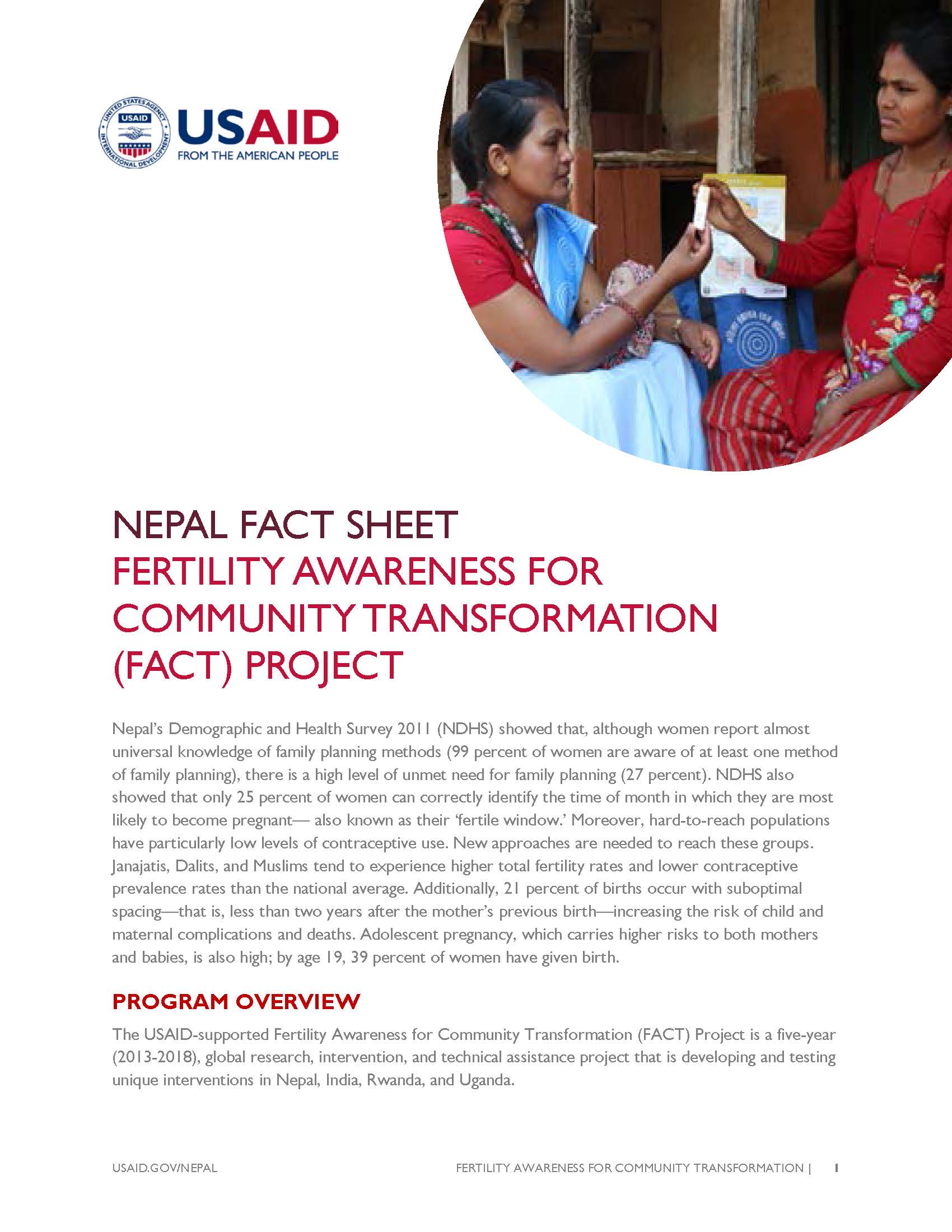Speeches Shim
PROGRAM OVERVIEW
The USAID-supported Fertility Awareness for Community Transformation (FACT) Project is a five-year (2013-2018), global research, intervention, and technical assistance project that is developing and testing unique interventions in Nepal, India, Rwanda, and Uganda.
The FACT project seeks to:
- Improve women’s and men’s understanding of the risk of pregnancy at different times during a woman’s life
- Increase understanding of how family planning methods work to counter concerns, myths, and misperceptions
- Expand access to the Standard Days Method® (SDM)i, which may be more acceptable to hard-to-reach groups
INTERVENTIONS AND PROGRAM ACTIVITIES
In Nepal, the FACT approach includes taking two related but unique strategies to increase fertility awareness and family planning use. Both solutions will be guided by key stakeholders, service providers, and the communities in need through a research-based approach whose activities can easily be scaled up.
Approach 1: Community Mobilization through Existing Networks. This intervention aims to increase fertility awareness to improve family planning use and will include the following activities to assess its effectiveness:
- Situation assessments
- Formative research to inform the intervention design
- Intervention design workshop
- Concept developing and proof of concept testing
- Piloting of solution, monitoring and evaluation
Approach 2: Roving Auxiliary Nurse Midwife (ANM) and Standard Days Methods (SDM) Integration. This approach will test the deployment of Roving ANMs to share family planning methods with difficult-to-reach and underserved groups, such as Muslims and the urban poor in Rupandehi district. It will also test the feasibility and cultural acceptability of both SDM and CycleBeads®ii among hard-to-reach groups. The following interventions will be used to research this approach:
- Formative research
- Capacity building – materials adaptation/preparation and training.
- Hold intervention planning meeting with findings from formative research.
- Piloting of approach


Comment
Make a general inquiry or suggest an improvement.